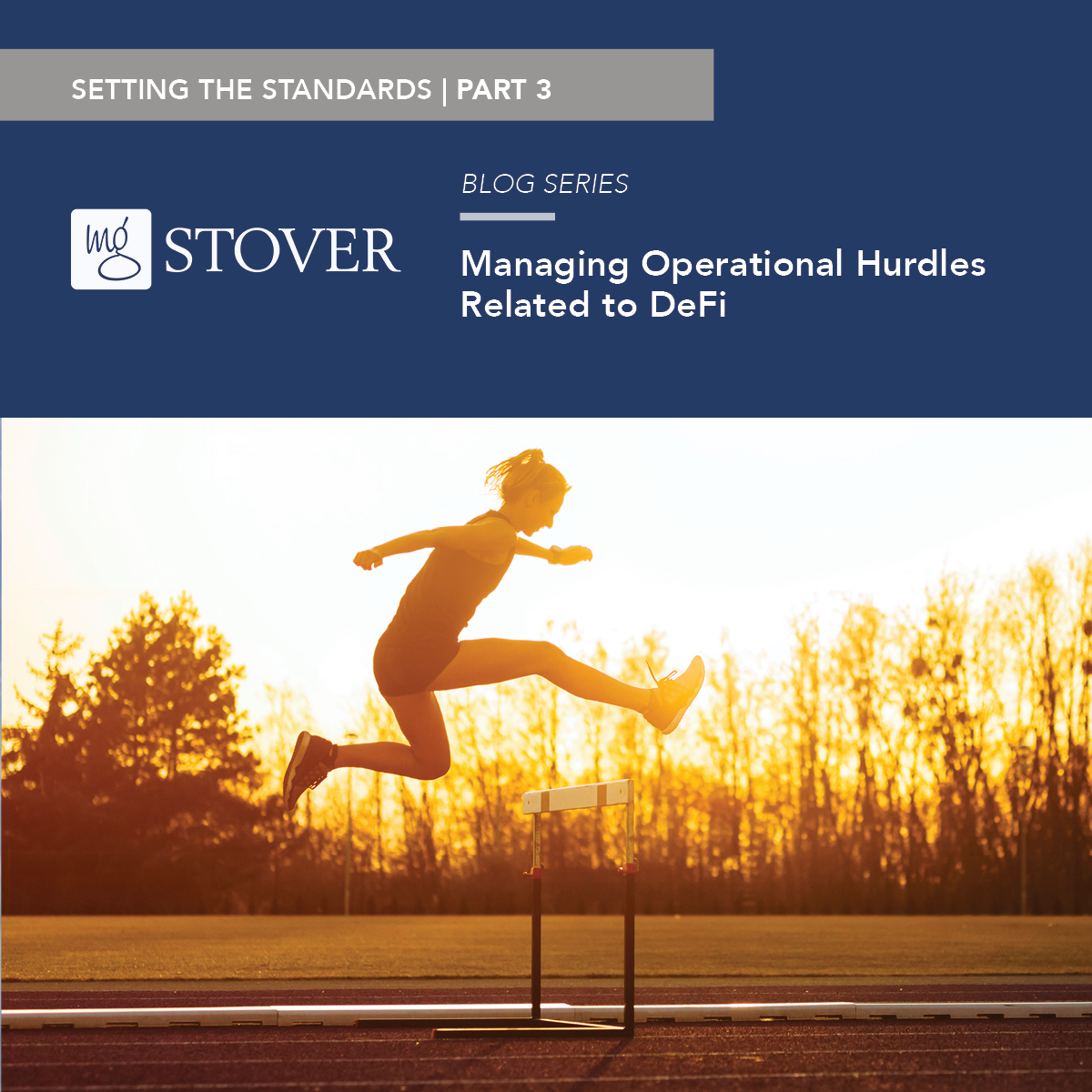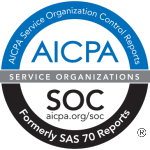Setting the Standards Blog Series: Part 3 Managing Operational Hurdles Related to DeFi

MG Stover has been providing fund administration services in the digital asset space for nearly a decade, a tenure unequalled in the industry. In previous blogs, we have discussed how this tenure has allowed us to set the standard for digital asset service providers, and how our boutique yet robust approach allows us to bridge the gap between trading and finance teams for our clients. Now, Josiah Reich, COO, Fund Services, and Michael Gilman, Director of Business Development, go a bit deeper to address how our expertise and services can support funds as they navigate operational hurdles which inevitably arise when transacting in DeFi.
Tackling DeFi and Enabling Opportunities
When it comes to accounting for on-chain transactions through DeFi protocols, a fund administrator’s processes must be designed to ensure completeness and accuracy of all records that it produces.
Completeness refers to the ability to track all assets across protocols and ensure that all assets deposited into wallets and withdrawn are verified and accounted for properly. While it is true that on-chain transactions have transparency and are available to be viewed on the blockchain, the administrator must ensure it has the robust controls and systematic capabilities to produce a complete record of transactions and assets. A 100% independent reconciliation must be driven from a systematic process, utilizing current technology to ensure all assets are captured and that all transactions and movements between fund locations and chains will be accounted for. Missing locations or incorrectly accounting for deposits and withdrawals may have extreme impacts on the NAV of a fund in any given period and therefore this is a very important aspect of any fund manager’s due diligence when evaluating its service provider.
Accuracy in translating the DeFi transactions into the accounting book of record is also of extreme importance. The benefit of producing data based on the information on the blockchain is that the ledger provides the directional nature of the asset movement and contract-based functionality. The accuracy of the data recorded will rely on a process with an order of operations designed to:
- Read the data from the blockchain;
- Interpret the transactions;
- Translate those transactions into a standard accounting processes; and
- Apply accurate pricing logic to ensure sound accounting that follows applicable accounting principles that may be audited.
These fundamental processes must be implemented in a standardized and systematized process that will be adhered to consistently through the population of a fund’s on-chain activities.
Facilitating Dialogue in Digital Asset Fund Operations
As experts servicing both traditional and digital asset funds, we quickly recognized and consistently advise our clients about the importance of regular and free-flowing dialogue between the fund and their service providers, especially when the fund is transacting on-chain without the centralized reporting provided by exchanges, OTC or trading platforms. The world of digital assets is a new and swiftly changing landscape with multiple venues and ways for a fund to transact. Consequently, a service provider must be well-equipped with the information and knowledge of the investment transactions, backstopped by adequate technology for trade capture and processing, in order to produce timely and accurate financial reporting. Given that proper accounting for DeFi trades must be developed and implemented, it is imperative that a fund’s service provider is regularly informed of such activities, especially as they evolve and as market opportunities emerge which may include new protocols, contracts and blockchains.
Although full risk assessments pre-transaction are the responsibility of the fund, MG Stover’s deep knowledge and experience in digital assets can support a fund when considering transacting on a new blockchain or DeFi protocol. Without such conversations happening at a regular cadence, operational risk can arise for both the administrator and a fund manager. If a service provider lacks information and proper preparation to capture and process trades resulting from a new strategy or interacting with a new protocol, risk increases that data may be inaccurately recorded. To mitigate these risks, we recommend a weekly conversation as a best practice. This routine check-in not only saves time in the long run for all parties involved, it also ensures the accuracy and completeness of records and accounts.
Strategies for a Smooth Audit Process
Effective communication between funds and service providers has a cascading effect, paving the way for successful audits. While proper planning and regular dialogues between the fund administrator and auditor are fundamental for a smooth audit, MG Stover takes it a step further by leveraging our knowledge, services, and technology to provide our clients and their auditors with specialized and boutique support necessary to make audits of digital asset funds successful.
In the dynamic world of digital assets, still in its nascent phase, we advise our clients to ensure they have a complete understanding of both the approach and accompanying technology an auditor intends to utilize in the completion of their work. Auditors may opt for a completely substantive audit approach by independently recreating a fund’s portfolio in its entirety. While an examination of 100% of trades is ideal for completeness, this approach could require significant technological capabilities, such as connecting to multiple protocols and blockchains, which can potentially pose a challenge to firms without deep experience in the space. Alternatively, auditors could choose to extract a sample of trades to test and implement further processes to ensure they are able to validate and substantiate the fund’s records. Hence, we emphasize the importance of fund clients gaining a complete understanding of the proposed audit methodology and the accompanying technology, as no approach is without potential challenges.
A fund’s valuation process is also an important part of the audit that will have a significant impact on the timeliness and cost. This is especially true for venture fund managers or those holding illiquid and hard to value investments as part of a fund’s portfolio. Our in-house expertise gives us a unique vantage point to advise our clients on best practices when establishing valuation procedures at an early stage, implementing those procedures on a consistent basis, and communicating effectively with auditors to ensure successful procedures may be performed, allowing them to opine on the accuracy of the financial statements. MG Stover’s client services teams draw on years of experience working with digital asset managers, highlighting potential issues and offering advice to facilitate a smooth audit process for all involved.
Technology that Enables
MG Stover’s technology team has been developing innovative solutions to fill the gap in existing products. As leaders in the fund administration space, we recognize the need for efficient capture and processing of digital asset transactions. Our technology platform, OTTO, has quickly emerged as the optimal solution to enable the digital asset investment industry. Our OTTO platform and middle-office team offers a comprehensive digital asset reconciliation and reporting service for funds and financial institutions, integrating with digital asset exchanges, wallets and protocols, and allowing users to reconcile their digital asset holdings across multiple platforms in real time. Since going live, a growing number of clients have adopted OTTO to track, monitor and account for digital transactions. OTTO is agnostic to audit methodology and can be an invaluable tool for auditors, offering an additional layer of independent validation of trades and accounting calculations. More on OTTO can be obtained by contacting pat.clancy@polysign.io.
HEADQUARTERS
1401 17th Street
Suite 1225
Denver, CO 80202
OTHER SERVICE LOCATIONS
Chicago
New York
Seattle
Philippines
Nova Scotia, CAN


